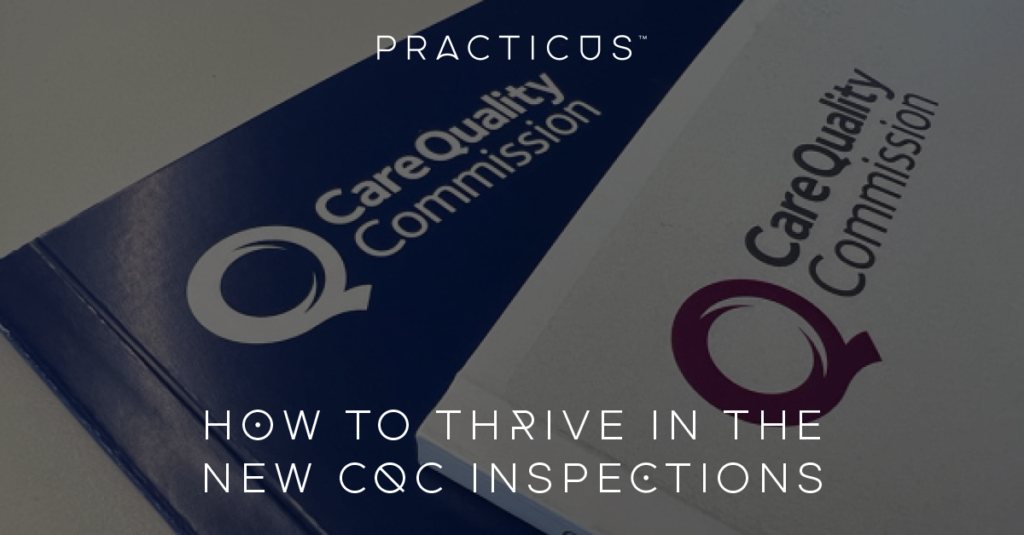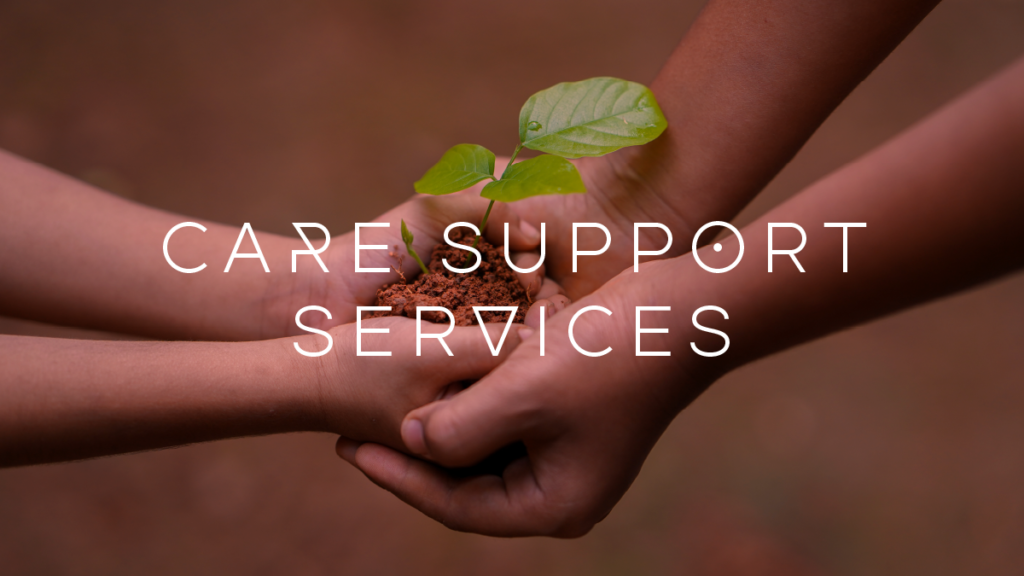The New CQC Inspection Framework
What It Means and How to Thrive

Roxy Potts – Senior Consultant, Health & Social Care, Practicus
The world of adult social care is undergoing a significant shift as the Care Quality Commission (CQC) introduces new changes to its inspection framework. The new framework will bring about:
- One, universal CQC framework system
- Quality and risk assessments, rather than inspection schedules
- Better understanding of improvement actions
- Evidence scores, as opposed to current ratings
- Narrative reports with summaries (to support ratings)
For many providers, these changes may feel daunting and challenging to navigate. With the emphasis shifting from a one-time inspection to a continual assessment of quality and risk, the pressure is on providers to demonstrate readiness for the new monitoring and inspections. As one provider put it: ‘every day is now CQC inspection day’. In this blog, we’ll explore the key changes that providers need to be aware of and how short-term external support from specialists can be a wise investment in making sure your team is fully equipped to transition smoothly.
Quick Facts
The CQC exists to assess the quality of care delivered by care providers. It rates care as ‘outstanding’, ‘good’, ‘requires improvement’ or ‘inadequate’. Currently out of a total of 17,100 care homes with 430,000 residents, one in five homes is rated as ‘inadequate’ or ‘requires improvement’, while only 5% are rated as outstanding. So whether providers are striving to improve, or wish to maintain high standards attained, it is worth the effort and commitment to be prepared.
The Need for Change in CQC Inspections
During the pandemic the inspection regime ceased altogether, highlighting the need for the inspection regime to improve and become less reliant on physical inspections, although these will remain an important factor in the new framework. Reverting to reliance on the inspections is proving challenging for the CQC to keep up, and for providers keen to get an accurate rating reflecting today’s performance.
During 2023, the CQC is being equipped with new powers to provide a meaningful and independent assessment of care at a local authority and integrated care system level. First unveiled in 2021, the introduction of the new CQC Framework has been delayed until the end of the year, to give care providers more time to prepare for the changes. This is welcomed by many in the care industry. A recent survey (1,268 providers) conducted by the online news portal ‘Care Home Professional’ found that just under half of the respondents felt they understood the new framework well. Moreover, 63% said their organisation had not yet started preparing for the new framework.
Since resuming inspections, the need for change is real. Providers feel that the risk-based approach to inspections by CQC inspectors often overlooks the positives within a service, leading to providers waiting a long time for an inspection or being stuck with an undeserved rating. Improvements made by providers may not prompt a re-inspection, and the CQC may not consider hardships faced during the pandemic, such as staff shortages. The new framework should help mitigate this.
The New CQC Inspections Model – Single Assessment Framework
The CQC has always had three assessment frameworks: one for hospitals, one for adult social care and one for primary medical services. Now, a single assessment framework has been developed by the CQC to streamline and simplify the process. The new single assessment model will replace set-piece inspections with continuous, ‘multi-point’ assessments designed to establish one clear understanding of what defines ‘quality’ care and ‘good’ service. The aim is to make the framework more accessible for everyone – including CQC workers, healthcare providers, and partners working in the system.
In moving from an inspection-based framework to a continual assessment one, providers will be expected to show how effective their care is through sharing data from multiple sources. This will largely be supported by a remote collection of information from providers, consistently and daily.
The changes implemented by the CQC will be introduced in phases starting April 2023. Providers will need clarity on what information is needed and how it can best be delivered. There is more emphasis on more person-centered care and safety cultures that can learn and improve over time, with systems in place to accommodate this. It needs someone with the right experience to get this insight. If not available in-house, external support can help.
How the CQC Inspection Landscape is Changing and What Providers Need to Know
The rating scale of Outstanding, Good, Requires Improvement and Inadequate stay the same, as are the CQC’s five key questions (Safe, Effective, Caring, Responsive, Well-led). But, importantly how CQC will assess if a provider is meeting those 5 standards and how their overall rating will be determined is changing.
A major streamlining within the framework is that the CQC Key Lines of Enquiry (KLOEs) and Ratings that providers are familiar with are all being retired and replaced by fewer but more detailed quality statements.
To answer the 5 key questions, the CQC’s new regulatory model puts emphasis on a data-driven approach and rolling assessment of quality and risk through inspections and other assessments including:
- Gathering feedback from people using the service
- Hearing from staff and leaders
- Direct monitoring activities (conversations between provider and CQC inspector)
- Reviewing evidence submitted by the provider.
Each of these areas of assessment could impact a providers’ rating, making it crucial to stay on top of them all. The CQC’s goal is to have this new assessment in place for all providers within 2 years. Radar Healthcare give a brilliant summary of some of the changes and impacts in their blog: “Unpacking the CQC: How will the new CQC strategy bring positive change to your care organisation”
Using an Expert to Help Providers Prepare for the CQC Inspection Changes
While being offered breathing space with delayed implementation of the Framework, providers need to act now (if not already) to prepare for the new framework and how compliance will be evidenced. This is where drawing on the expertise of an interim professional to help embed new organisational systems, processes, knowledge and governance is a wise investment. This can help with achieving positive inspection outcomes as the CQC moves to the new framework and inspections format.
There are a number of key considerations where such expertise can make a significant contribution:
- Data collection — this is a key aspect of the new framework and requires digital auditing and reporting into regular systems as the best way to submit information for monitoring trends. Whether using e-systems or paper-based documents, providers are advised to consider how their documentation will reflect the quality statements and act as evidence under the new framework
- Quality Governance — Understanding the transition from KLOEs to Quality Statements and reviewing processes, audits, governance, and practices that currently reflect the KLOE framework. This includes proactive understanding and clear processes to ease the impact of the changes and assist in evidencing the quality statements as part of ongoing inspection.
- Evidence Collection – preparing for new categories for the ongoing evidence collection and considering training and support for those being consulted as part of this process.
- Implementation — Preparing for the Single Assessment Framework by considering the impact and implementation of changes on staff, processes, and governance, and having a clear strategy to support, train, and transition staff to effectively manage changes.
Preparing for the new CQC framework can be challenging, especially when there are so many other day-to-day responsibilities to attend to. However, it’s important to remember that these changes are significant and require providers to take action in order to maintain compliance and deliver quality adult social care. Seeking external support from an interim expert can be a wise investment in ensuring readiness for the new regime. Remember, being proactive now can save time and effort in the long run.
We work with a deep network of social care professionals who have helped transform our client’s approach to safety, quality and governance. If you would like to learn more about how we can help, please don’t hesitate to get in touch with us for a confidential conversation.


